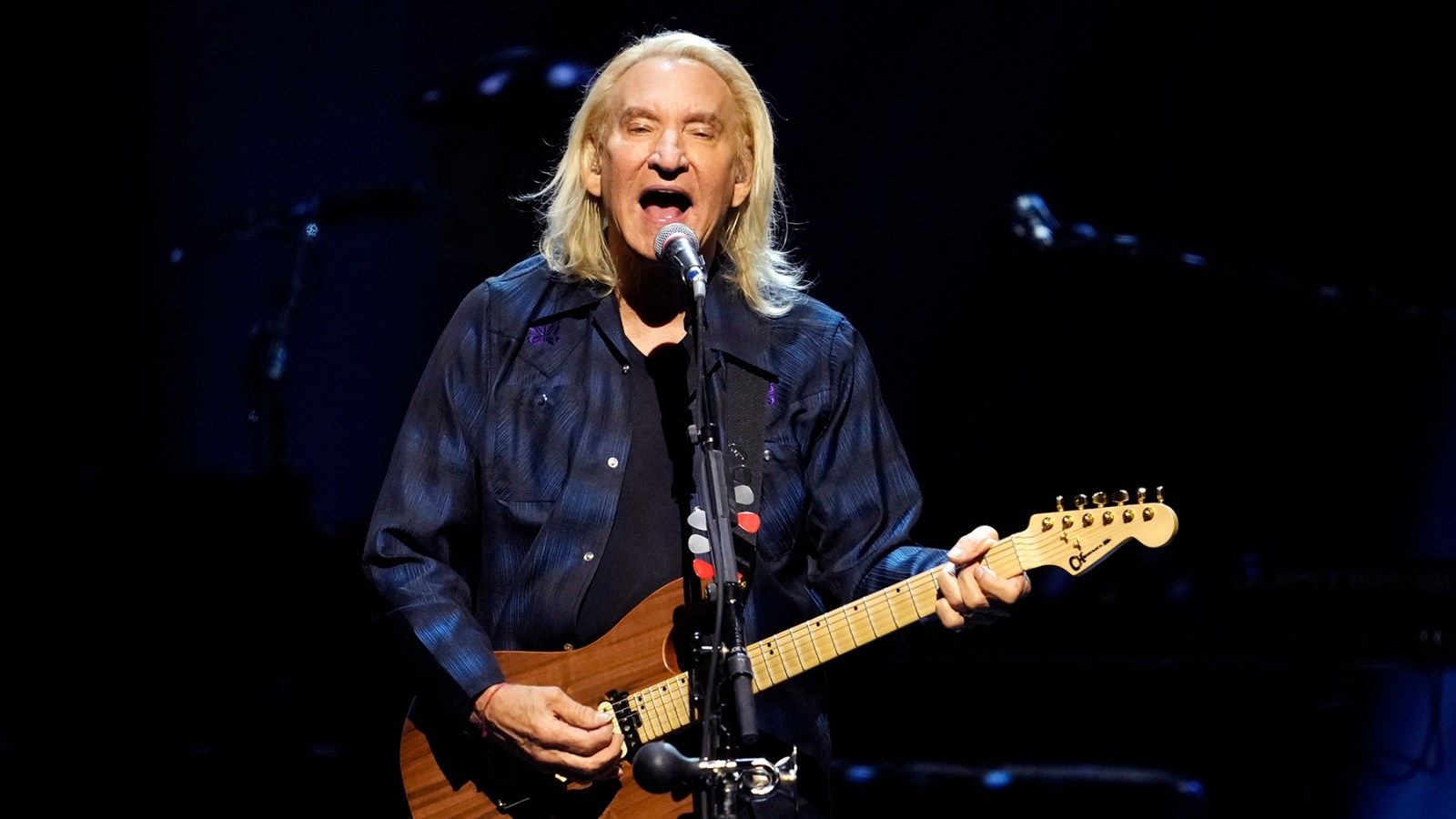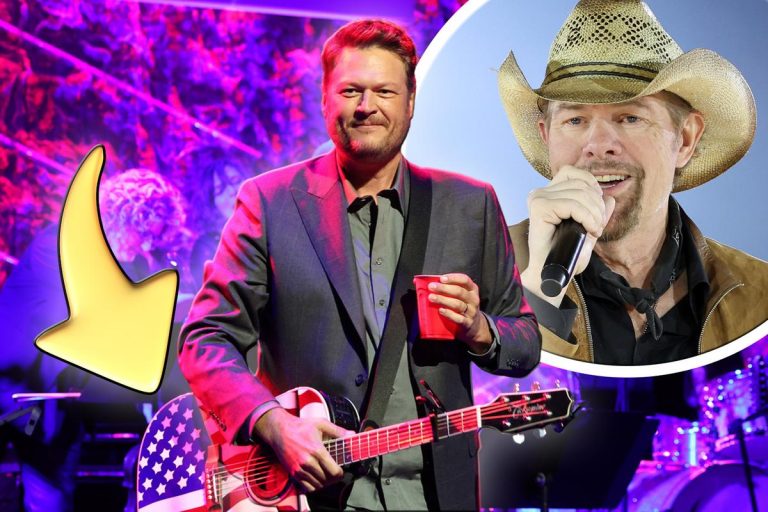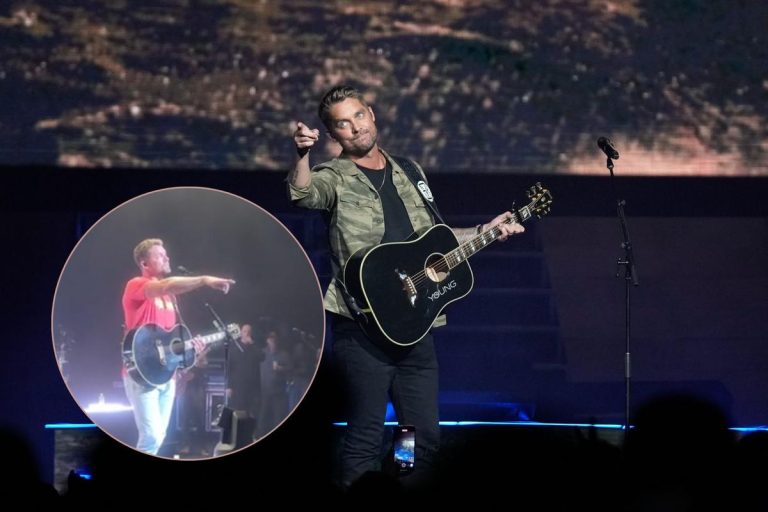Joe Walsh has spent the past four weeks playing with the Eagles at Sphere in Las Vegas, but he’ll take a break Nov. 11, when he headlines the eighth annual VetsAid at UBS Arena in Belmont, New York, alongside Post Malone, Erich Church, Toto, and Kool & the Gang. Walsh co-founded VetsAid back in 2017 to raise money for military veterans and their families all across America. They’ve raised nearly $3.5 million.
Walsh’s interest in veterans goes back to his early childhood, when his father, a fighter pilot, died in a crash while serving in the Air Force between World War II and the Korean War. “When my father died, there was no support group,” Walsh tells Rolling Stone via Zoom from his home in California. “I just went through the rest of my life without a father. And in those days it was, ‘Too bad. Sorry about your father.’ So I was a Gold Star kid, as we say, and I’ve always supported veterans and families and what they go through and what their lives are like.”
He started VetsAid after traveling across America and coming across countless veterans who had fallen on hard times. “I just firmly feel that they don’t get enough help after they put themselves in harm’s way,” he says. “And I wanted to make a difference in that. I mean, a homeless veteran drives me nuts. That’s why I decided that this was a place where I could make a difference.”
We chatted about Walsh about VetsAid, booking the show in Belmont, what fans can expect to see that night, the ongoing Eagles residency at Sphere, and what the future might hold for the James Gang.
How has VetsAid changed over the past few years?
Well, we’ve come across a lot of vet organizations. Some of them just in the middle of nowhere in the Midwest. You come home from a war and you’re in Iowa, nobody understands it. You’re in this small town and you have nightmares, and there’s nobody there that even comprehends what’s wrong.
We’ve been able to help a bunch of vet organizations who aren’t funded by any government or anybody. They work on donations only, and we’ve been able to find them, sort through them, and find the good ones who are making a difference, and keep them going.
How does the lineup for the show come together? Do you personally book the artists?
Well, my son [Christian Quilici] has been my main guy to just jump in the trenches, shall we say, and get this stuff done. I found it really difficult at first to ask people, “Hey, you want to come play for free?” And it was awkward at first, but a whole bunch of people said, “Yeah, yeah, sure, I’ll do that.” And we put together some great evenings of music.
It’s a pretty eclectic mix of people this year with Post Malone, Eric Church, Toto, and Kool & the Gang.
Yeah. That group right there, we would never come across each other backstage unless there was something like VetsAid. And for every one of the VetsAids that we’ve had, backstage, everybody gets a chance to hear each other, meet each other. We’ve all heard about each other, but we don’t know each other. And the camaraderie that happens is everlasting after that.
Do you think you’ll jump onstage and play with any of them?
Yeah. I’ll sneak out there.
You haven’t done a solo gig in a while since the Eagles have been so busy. Who will be backing you?
A collection of people that have played on my solo tours in the past. And I borrow the Eagles band. We have a couple people we call every year, and we just have an artistic community of people based on availability. Musicians are another group of people that really showed up.
You’re playing with Post Malone. What will that set be like?
Well, I don’t know. You tell me. Here’s a relatively new guy that’s killing it, and he’s amazing. And much to my amazement, he knows who I am and he’s a big fan. And so we’re just going to put our heads together. I’m going to play on his songs, he’s going to play on one of my songs. We’ll probably be buds from then on.
Do you think there will be a big jam at the end of the night with everybody?
If we have time. The halls are very, very helpful. There’s no definite curfew. The unions are all in. They don’t go, “Oh man, after midnight it’s going to cost you triple scale.” There’s nothing like that. A lot of the union guys are vets.
And it’s just a wonderful feeling for all of us to be part of. The veteran families come and meet each other. Gold Star families meet each other and everybody networks. It’s such a good feeling at the end of the show.
How do you hope VetsAid will grow and change in the years to come?
Well, I just want to keep it going. We’re little now, but we’re mighty. And what I get from it is just a wonderful feeling of, “Yeah, I founded something that I care about and I made a difference.” And the feedback from the people we helped and the musicians is nothing but encouragement to keep going. I don’t think we need to get much bigger than we are.
Do you plan on doing one of these next year and every year going forward?
Yeah. Every year I say, “Well, it’s work, I’m not doing that again.” And then here I am doing another one. So yeah, we’ll keep going as long as I can get four or five people to say yes on the phone. And I’ve had no problem with that. I’m getting pretty good at asking now.
How have your experiences been these past few weeks playing at the Sphere?
The Sphere is a 21st century technology. And it’s a new thing. It’s a new thing for us. It’s a new thing for music. It’s a new thing for the people that work at the Sphere. Nobody really knows how to work it except to go in and see what the problems are and fix them. So it’s getting better and better all the time, but it’s amazing.
I saw U2 there a couple of times and the experience was so radically different than most other concerts. How different does it feel onstage?
It’s very different onstage. There are some non-musical things that we have to put up with to make it all work, and we’re OK with that. We’ve had to learn how to do it. At first it was maybe a deal-breaker, but we’ve learned how to do it. U2 said, “We didn’t have a clue, but we’ve learned how to do it.”
What non-musical things did you have to worry about?
Technical things. On the Sphere there’s 160,000 speakers behind the screen. No matter where you sit, you have speakers pointing at you, so they don’t have to be really loud. To do that, computers have to delay it a little bit from what we’re doing. Because it goes to everywhere in the Sphere and comes out of these speakers all at the same time, there’s a delay there to process that.
If we’re aware of that, we can’t play. It’s like singing “The National Anthem” at a baseball stadium. [The sound from] right field comes right back at you, and then left field comes back at you, and then center field. There’s three of you and you don’t know which one you are.
How do you deal with that?
The new technology we have is the in-ear headphones. They’re actually our monitor system and they seal us from the stage. There’s no amps on stage, there’s no PA set up, there’s no speakers hanging from the roof, facing the balcony. It’s all there, and everybody hears everything at the same time. And adjusting to what we do is different than 30 years of touring that we know about.
Every song has its own unique visuals attached to it. Were you involved in the creation of those?
Oh yeah. This started probably a year ago by now. We meet with the Sphere people, who are brilliant, and it’s a new science for them too. And we talked to them about our songs and our feelings when we wrote them and what the song’s about and the mood of the song and how we envision it. I mean, Don [Henley] had to explain the Hotel California that he saw in his mind when he wrote the song, and then they took that and went and put together something visually based on that. It’s profound when you see it.
Did you talk to them about “Rocky Mountain Way” and “In the City”?
Yeah. I did all my songs, and we all jumped in a little on Eagles songs. This took place a year ago. And there’s four or five guys that have been writing code to make all of that link up to the sound. It’s an ongoing thing.
Is the setlist pretty locked in at this point because of all the visuals that were created or is there some room for change?
There’s some room for it. We’ve done six or eight shows. We’ll take a look at it now and maybe change a couple songs out. And the video people have new ideas and stuff to improve, so it’s mutating. And to do that, we have to do what they call rendering the whole show into the computer. And then we’ll see an update. We didn’t know any of this when we started, so we’re learning as we’re going. And then when you start to comprehend what the show is, we go, “Aha, well, what about this? And what about that?” And the tech guys do this too.
It must be surreal to stand on that stage and feel that massive screen wrapping up the walls and going onto the ceiling outside of your field of vision.
It is. I’ve tried to watch a bit, and it doesn’t work. I was watching and I was looking up at the screen, I’m going, “Wow, look how big my nose is.” And then I realized I’m not playing the same song the rest of the band is playing. So none of us can do that. We have to look straight ahead, play the music, play good music like we know how to do together. That’s our assignment.
To wrap up here, do you think the James Gang will ever play together again?
Boy, that’s always an ace up my sleeve. I have great plans for the future, but for right now, the Eagles is a full-time job. And that’s what I’m going to do for the foreseeable future. To answer your question, absolutely. The James Gang is going to play again.




Leave a Comment